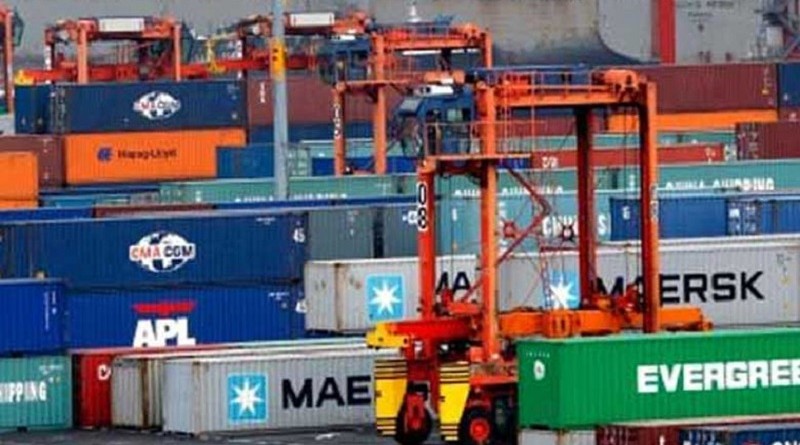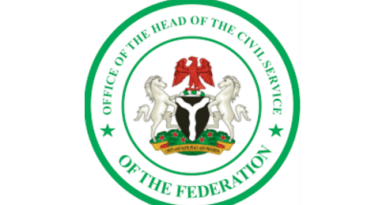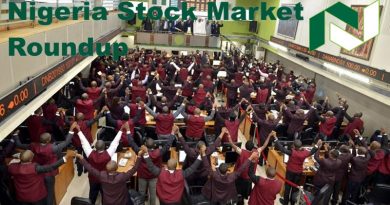Taming the Monster of Trade-Related Illicit Financial Flows in Developing Countries
Data and records from 135 developing countries shows that misinvoicing is a persistent problem resulting in massive revenue losses – at a time when most countries are struggling to mobilize domestic resources to achieve the internationally-agreed UN 2030 Sustainable Development Goals (SDGs).
Misinvoincing is one of the chief mediums of illicit financial flows that unscrupulous persons adopt to cheat and siphon money out of their countries and from their governments. This practice thrives more in the developing countries due to their weak infrastructure, poverty, high level corruption and weak internal and audit systems.
According to the latest official government trade data reported to the United Nations to estimate the magnitude of trade misinvoicing Nigeria recorded an estimated $87 billion in trade misinvoicing with its trading partners over the 10-year period 2008 – 2017. The report also shows that the gap in Nigeria’s trade value with some 36 advanced economies averaged $4.8 billion, which translates to $48.8 billion, over the 10-year period.
The study focused attention on misinvoicing in trade between and among 135 developing countries and 36 advanced economies, and found $8.7 trillion gap in reported trade between the groups of countries over the ten years. The report states that trade misinvoicing is a significant obstacle to sustainable development.
The report further stated that “Developing countries are losing a significant percentage of the value of their trade transactions. Indeed, in 2017, the value gap associated with trade misinvoicing amounted to 18 percent of developing countries trade. In 2017, the most recent year for which data are available, the total value gap in trade between advanced economies and developing countries was $817.6 billion.
Other key Key findings of the report include:
US$8.7 trillion: The sum of the value gaps identified in trade between 135 developing countries and 36 advanced economies over the ten-year period 2008-2017;
US$817.6 billion: The sum of the value gaps identified in trade between 135 developing countries and 36 advanced economies1 in 2017, the most recent year for which comprehensive data are available. This analysis adds to what GFI has provided in previous annual reports.
Developing countries with the largest annual average value gaps (in US dollars) in their bilateral trade with 36 advanced economies over the ten-year period 2008-2017
- China – US$323.8 billion
- Mexico – US$62.9 billion
- Russia – US$56.8 billion
- Poland – US$40.9 billion
- Malaysia – US$36.7 billion
Developing countries with the largest value gaps as a percent of their total bilateral trade with the 36 advanced economies over the ten-year period
- The Gambia – 37.3 percent
- Togo – 30.2 percent
- The Maldives – 27.4 percent
- Malawi – 26.8 percent
- The Bahamas – 26.6 percent
By contrast, China ranked 80th out of the 135 developing countries analyzed, with an average value gap of 18.8 percent of its total bilateral trade with the 36 advanced economies over the same period.
Developing countries with the largest average value gaps as a percent of total trade between the 135 developing countries and all trading partners over 2008-2017
- The Gambia – 46.8 percent
- Seychelles – 38.3 percent
- Paraguay – 27.1 percent
- Ghana – 26.5 percent
- The Bahamas – 25.9 percent
The three largest value gaps (in US dollars) by harmonized system (HS) chapter between the 135 developing countries and 36 advanced economies over 2008-2017
- Electrical Machinery (HS 85) – US$153.7 billion
- Mineral Fuels (HS 27) – US$113.2 billion
- Machinery (HS 84) – US$111.7 billion
The average sizes of the value gaps by dollar amount between the developing country regions and the 36 advanced economies over the ten-year period of 2008-2017
- Asia – US$476.3 billion
- Developing Europe – US$167.9 billion
- Western Hemisphere – US$131.5 billion
- Middle East/North Africa – US$70.6 billion
- Sub-Saharan Africa – US$27.2 billion
US$63 billion: The largest value gap identified when examining trade misinvoicing between developing country regions over the ten-year period was between Developing Asia and the Middle East/North Africa in 2014
US$1 billion: The lowest value gaps identified when examining trade misinvoicing between the developing country regions over the ten-year period were between Sub-Saharan Africa’s trade with Developing Europe, Middle East/North Africa and the Western Hemisphere in several of the years
On a Regional level – The largest value gaps in trade with the 36 advanced economies over 2008-2017 were: Developing Asia ($476.3 billion); Developing Europe ($167.9 billion); Western Hemisphere ($131.5 billion); Middle East/North Africa ($70.6 billion); and Sub-Saharan Africa ($27.2 billion). The largest value gap between developing country regions was $63 billion, in 2014 between Middle East/North Africa and Developing Asia
Measures to Tame Trade-Related Illicit Financial Flows in Developing Countries
Policy measures to combat trade misinvoicing in developing include but not limited to:
Make trade misinvoicing illegal – Among the many constraints customs agencies face, the largest may be the fact that in many countries falsifying trade invoices is not criminalized. Therefore, one of the most important steps countries can take is to adopt legislation clearly criminalizing trade misinvoicing and ensuring adequate associated penalties
Strengthen law enforcement capacities of customs authorities. A second step that can be taken by governments is to establish specialized asset forfeiture and recovery units at the national level and/or advocate for the creation of a special office of asset recovery within regional organizations such as the African Union. This is because, as noted above, typically customs agencies have prioritized revenue collections, not law enforcement, and therefore the enforcement abilities of agencies must be strengthened with adequate capacities and resources.
Strengthen customs oversight of free trade zones. Governments should consider adopting the WCO’s voluntary SAFE Framework of Standards to Secure and Facilitate Global Trade in FTZs, which includes a set of global recommendations designed to strengthen the effectiveness of customs controls.19 As of November 2019, 171 states had signaled their intention to apply the SAFE Framework, but the degree of actual implementation remains unclear.
Establish National Trade Facilitation Committees -The WTO’s TFA is supposed to set up National Trade Facilitation Committees (NTFCs) in each country, however, sufficient financing for such national bodies is lacking. A 2014 study by United Nations Conference on Trade and Development (UNCTAD ) found adequate financing for NFTCs was available in only 18 percent of developed countries, 36 percent of developing countries and 21 percent of LDCs.21 This suggests that for governments to fulfil their TFA commitments related to efforts to combat trade misinvoicing such as Article 3.9(b) for pre-clearance, Article 7.5 for postclearance audits and Articles 12.2–12.12 for information exchange between countries, much more financing is needed. Where countries cannot afford to adequately finance their NFTCs, additional donor aid must be forthcoming.
Establish multi-agency teams to address customs fraud, tax evasion and other financial crimes – The OECD22, World Bank and other institutions have advocated that governments take a collaborative approach to fighting financial crimes. This would require eliminating silos between relevant agencies (ex. customs, financial intelligence units, revenue authority, and law enforcement among others). Enhanced cooperation, information sharing, and interdiction strategies are among the steps needed to foster an effective centralized approach to curtail fraud, tax evasion, grand corruption, and transnational crime.
Implement trade misinvoicing risk assessment tools. Governments should consider adopting tools that help identify potential trade misinvoicing in international trade. One such tool is GFTrade, a proprietary risk assessment application developed by GFI, which enables customs officials to determine if goods are priced outside typical ranges for comparable products. The system provides officials with real-time price comparisons for goods while they are critically still in the port, with price ranges for the product based on official government trade data. If the declared price on an invoice is significantly different from the comparable average prices prevailing over the previous 12 months on world markets, the cargo could be flagged for further investigation. The GFTrade system uses the most recent official trade data from 43 of the world’s largest trading countries including China, the United States, EU28 and Japan and provides the ability to search for goods values based on thousands of Harmonized System (HS) codes. Tools like GFTrade are essential in assisting governments to maximize domestic resource mobilization and tackle trade misinvoicing
Expand information-sharing between importing and exporting countries – The WCO and the United Nations Office on Drugs and Crime (UNODC) have established a joint Container Control Programme, which establishes inter-agency units within countries for exchanging information with their counterparts in other countries, allowing customs agencies and port authorities to share information about high-risk containers and verify their identification numbers, etc. However, as of 2018, only 54 countries have adopted this system. The WCO also recommends countries establish a legal basis and/or develop administrative arrangements for the exchange of information between and among customs administrations in partner countries for purposes of compliance and enforcement using WCO instruments and tools, such as the revised Model Bilateral Agreement, the Guide to the Exchange of Customs Valuation Information, etc. More countries should move to adopt the WCO and UNODC system.
Explore efficacy of distributed ledger technology to identify trade misinvoicing -Additionally, a pilot project being led by the World Economic Forum and the InterAmerican Development Bank is underway to test the feasibility of using distributed ledger technology, such as blockchain, in facilitating trade transactions. One of many so-called “pain points” highlighted by this program is the “limited trustworthiness of data entered” on invoices .
Establish public beneficial ownership registries – Where they have not already done so, governments should adopt legislation establishing public beneficial ownership registries (requiring the true owners of companies be identified) and incorporating beneficial ownership declarations as part of their customs laws. It would be helpful to also encourage other governments to establish public registries of beneficial ownership information on all legal entities and require gatekeepers to the financial system, such as lawyers and accountants, to know the true beneficial owner(s) of any account or client relationship they open;
Adopt the recommendations of the Financial Action Task Force – Where they have not already done so, governments should build on their anti-money laundering and counter-financing of terrorism legislation by fully implementing and strongly enforcing the Financial Action Task Force’s recommendations
Participate in the automatic exchange of tax information – For the purposes of strengthening coordination with tax authorities in other countries, all governments should join the international Global Forum on Transparency and Exchange of Information for Tax Purposes, and establish mechanisms for the automatic exchange of information (AEOI) on taxation data with partner countries. Furthermore, governments should support the Addis Tax Initiative, a group of 55 countries committed to enhancing mobilization and effective use of domestic revenues and improving the fairness, transparency, efficiency and effectiveness of their respective tax systems
20 percent: The average sizes of the value gaps as a percentage of total trade within South- South trade and within North-South trade, which suggests that trade misinvoicing is proportionately a similar problem in trade among developing countries as it is in trade between developing countries and advanced economies.
– Chimaobi Agwu – Business Editor




